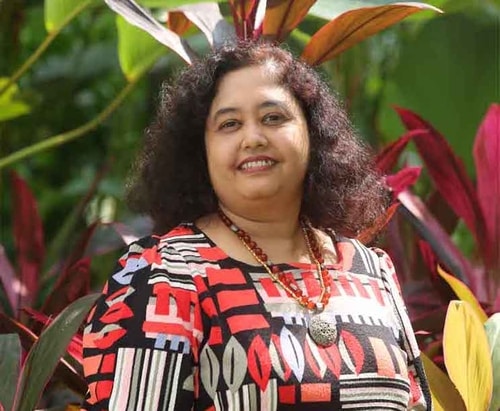What is truth?
That question has plagued philosophers, religious leaders, statesmen, public figures and influencers for thousands of years. In a world inundated with information but often unclear on accuracy, it’s also a question that now stands out in sharper relief than ever. It is sometimes impossible to know if the information in front of you is merely someone else’s opinion or in fact a lie. In a world where ‘fake news’ is prevalent, being able to differentiate between fact and fiction is essential.
At One World International School (OWIS) Singapore, we want students to grapple with questions of truth, thinking, reason and faith. We want them to ask questions such as:
Who shapes what we know? When is a source reliable? How do I discern if what I think I know is actually true?

Theory of Knowledge Course
ToK is not a typical course. Due to the nature of this subject, learners experience the classroom differently than they ever have before. The ToK syllabus consists of ideas and overarching questions rather than specified content to be learned by rote, and the classroom’s atmosphere fosters shared discovery rather than teacher-directed instruction. It links a range of academic studies together and encourages students to delve deeper into how these subjects relate to one another and which aspects of them are intertwined.
Students in ToK dig into questions of evidence, the accuracy of models and real-world application of theory. The course demands that students critically re-examine once-trusted sources of information, evaluating their reliability and sorting through the implications of a source validity. The focus on the discussions should be on the balance of facts and the quality of justification for ideas; it does not just focus on differentiating between ‘right’ and ‘wrong’ ideas.
What Students Learn in Theory of Knowledge
Throughout the ToK class, learners gain greater awareness of the influences that have shaped their perspectives and the perspectives of others. The course considers ways of knowing, areas of knowledge and factors that affect an individual’s opinions. In ‘Ways of Knowing’, students are encouraged to reflect on how they gain knowledge in the world, to think about emotions, language, sense perceptions and intuition. In ‘Areas of Knowledge’, they distinguish between different subjects such as maths, science, history, ethics, the arts etc. Within the ‘Factors of Knowledge’, they learn the difference between fact, opinions, belief and faith, and determine how to differentiate between these factors to progress their knowledge and skills. As a result, students develop into more culturally sensitive young adults, maturing finally into international citizens who possess an enhanced understanding of the world.

Specifically, students in the ToK course acquire:
● A desire to gain knowledge coupled with an appreciation of the empowering nature of that knowledge
● An understanding of how knowledge is constructed both by individuals and by societies
● An appreciation of the value of a cross-disciplinary study
● A respect for diversity of values, beliefs and practices innate in different cultures
● The skill to evaluate the responsibilities knowledge entails and how to use this responsibly both locally and globally
● An understanding of the nature of language and how to apply linguistic skills to express ideas
The Practical Ramifications of Theory of Knowledge
By attaining a deeper understanding of interconnected disciplines and theories to the diverse and interconnected world in which they live, we at OWIS aim for our students to become responsible, reflective, responsive and confident contributors to their world.
Please contact us for more information, or to book a tour.
(This blog was written in collaboration with Mr Adam Meyerhoff, former Senior Coordinator of Teaching and Learning at OWIS.)














